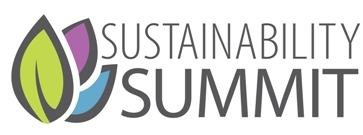• uYilo eMobility Programme contributes to international EV charging ecosystem report
• EV charging ecosystem report commissioned by ZEV Alliance and International Council on Clean Transportation
• Global report released at COP26 for Transport Day by Global Sustainable Mobility Partnership
The South African uYilo eMobility Programme contributed to the international report “Policies for a mature, flourishing & equitable EV charging ecosystem” published by the Global Sustainable Mobility Partnership (GSMP). The report was released during the United Nations Conference of the Parties (COP26) – a United Nations Framework Convention on Climate Change (UNFCCC) treaty.
This new report was commissioned by the Zero Emission Vehicle Alliance (ZEV Alliance) and The International Council on Clean Transportation (ICCT) and brings together inputs from different countries. The ZEV Alliance is a group of 18 national, state, and provincial governments committed to a collaborative approach to expand the zero emission vehicles (ZEVs) market and enhance governmental cooperation on relevant policies.
“The transition to electric mobility provides different challenges to every country,” says uYilo Director, Hiten Parmar. “Combining the input from several countries and economies, a more comprehensive framework can be rapidly developed and implemented with a lower cost and less time spent developing individual solutions.”
GSMP is a network of independent, not-for-profit organizations with extensive, practical and real-world experience in implementing low and zero emission mobility.
The report was launched at an event at COP26 in Glasgow. It includes contributions from GSMP members in South Africa, America, United Kingdom, Netherlands and India, citing examples from across the International ZEV Alliance membership.
A range of policy interventions are needed to ensure equitable access to charging, regardless of land tenure, driver disability or socio-economic status, as EVs become a mainstream option for personal and commercial vehicles and charger installations accelerate. Policies should be coordinated to improve charger reliability and enhance interoperability, tackle electricity network constraints, and support poor business cases to ensure that mature ecosystems flourish.
The recommendations encourage accelerated plans for, and deployment of, dedicated public charging hubs and public travel corridors to host Fast, Rapid and Ultra-Rapid chargers, as demand from vehicles which cannot be charged privately will increase significantly. This is especially for priority user groups identified by global stakeholders, notably from ‘fleets & staff’, ‘high mileage local’ and ‘long haul’ drivers.
The insights aim to provide Governments across the globe with recommendations to develop their EV infrastructure policies and programmes which will underpin the necessary switch to zero emission vehicles.
ZEVs are generally cheaper to operate, quieter at slow speeds and more pleasant to drive; nationally, their uptake will improve air quality, especially in congested zones, as well as creating new economic opportunities in a growing sector; and internationally, the mass rollout of ZEVs should help to slow the pace of global climate change and reduce oil dependency.
QUOTES:
Rachel Muncrief, Deputy Director of International Council on Clean Transportation, “For the ZEV Alliance governments, and for everyone else working to accelerate the ZEV transition, charging infrastructure is a persistent challenge.”This report from the GSMP provides insight into the top questions that governments are facing as they are strengthening their ZEV commitments and creating comprehensive, equitable charging strategies.”With the information and analysis in this report, charging can be a driver of the ZEV transition rather than a barrier.”
Jeff Allen, Executive Director of Forth, based in Oregon, USA, said: “This report outlines principles and strategies that governments around the world can use to guide their investments in charging to accelerate the transition to electric mobility. “One important finding is that centering equity and designing programs around drivers with the most barriers to going electric will generally result in better outcomes for all drivers.”
Robert Evans, CEO of Cenex, based in England, UK, said:“The accelerated electrification of road transport is critical to achieving Net Zero targets and a mature, flourishing, and equitable charging ecosystem is key to that.”This report offers international perspectives on the policies and best-practice options for electric vehicle charging. It addresses the more challenging areas for electric vehicle charging, including the commercial vehicle opportunity. “It has been a privilege to work with our partners in GSMP to conduct this study work for the International ZEV Alliance members and International Council on Clean Transportation.
Read the report: https://gsmp.world/wp-content/uploads/2021/11/211101-ZEV-Alliance-Policy-Advice_branded_Final.pdf
Ends
FOR MORE INFORMATION:
Hiten Parmar
Director: uYilo eMobility Programme
+27 (0)10 005 5346
uYilo Electric Mobility Programme
The national uYilo Electric Mobility Programme was established in 2013 as a multi-stakeholder, collaborative programme focused on enabling, facilitating and mobilising electric mobility in South Africa. uYilo is an initiative of the Technology Innovation Agency, a public entity of the Department of Science and Innovation. uYilo’s corporate satellite offices are located in Johannesburg and facilities headquartered in Gqeberha (formerly Port Elizabeth).
Website: uYilo Twitter: uYiloZA LinkedIn: uYilo Facebook: uYiloZA
Global Sustainable Mobility Partnership is a network of independent, not-for-profit organisations with extensive, practical and real-world experience in implementing low and zero emission mobility.

